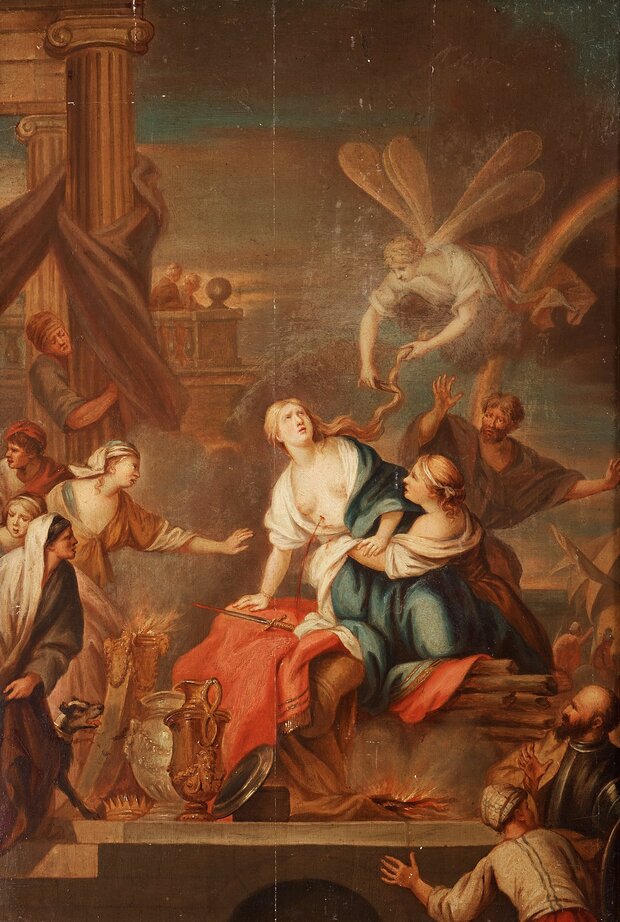|
It was very difficult to read this text without constantly comparing it to Cleopâtre captive, written by the same author a mere two years earlier. A better comparison might be Christopher Marlowe's Queen of Carthage published fifty years after Jodelle's adaptation, but for now I'd like to look at the similarities and differences between Dido and Cleopatra's plights. Essentially the stories are the same : a woman is abandoned by her lover, through death or by choice, and her response is to commit suicide, and the play goes into great poetic detail of the emotions involved. However, Cleopatra's death makes sense to a modern, feminist perspective, in that she is not killing herself due to the loss of Antony, but in response to the loss of her freedom. Rather than live in captivity, she sees death as a liberation from the mortal world, with the possibility that she will she Antony in the next. In the context of a society where the mortal world is simply a testing ground for the eternal life to come, is this death not a triumph? It has more in common with Mary's death in L'Écossaise, where her death is merely the release of her soul to heaven. In this sense, Dido's death can be seen in a very different light. Her choice to die is not a reaction to Aeneas leaving for Italy, but the shame that she feels for betraying her first, now deceased, husband. Her decision to "wash her sins with blood" comes across as far more savage and backwards than Cleopatra's search for freedom, and seems more aligned with a darker view of humanity that must be punished to be freed of its sins. With two seemingly opposing worldviews, one must imagine why Jodelle in the span of two years turned towards a more pessimistic outlook on the state of human sin and what must be done to achieve a peaceful life after death.
0 Comments
Leave a Reply. |
Jennifer KellettM.A. French Literature Florida State University Archives
June 2021
Categories |
Photos used under Creative Commons from mharrsch, Renaud Camus

 RSS Feed
RSS Feed
